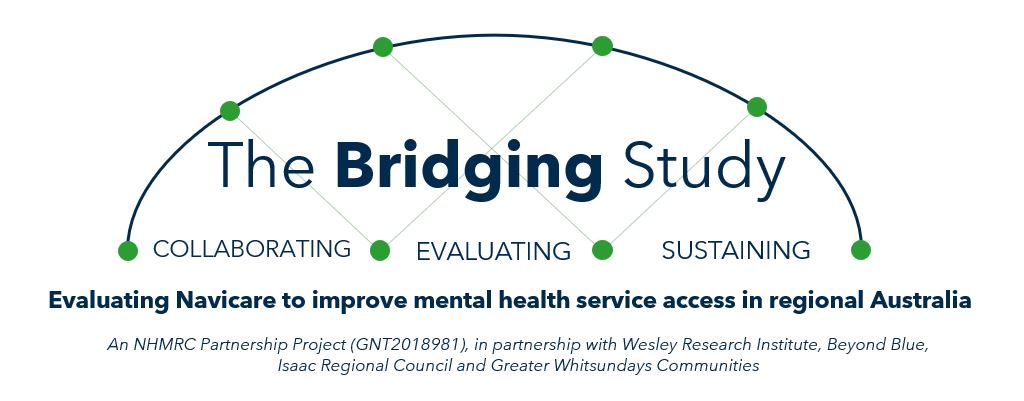The Bridging Study:
Evaluating Navicare to improve mental health service access in regional Australia
Why the research project is important
One in five Australians experience mental illness each year, but there is inequity in the disease burden, particularly for those living in outer regional and remote areas. A range of factors underpin this inequity, including geographical, structural and societal. Perhaps the most significant barrier is the ability to access appropriate and timely mental health services, which is markedly more challenging in outer regional and remote areas.
Access to appropriate care, at the right time and place, supports better mental health and quality of life outcomes and reduces the burden of crisis care.

What the research seeks to do
In collaboration with local community members, our team developed and piloted the Navicare model at a hub site in Moranbah in the Bowen Basin region in Queensland.
In the Navicare model, a Care Navigator links help-seekers with supports they may need to improve their mental wellbeing. The Care Navigator assists with referrals, making appointments with mental health care professionals, and providing a private space in which to access online mental health support from online psychology partners.
This project will evaluate the Navicare model at the existing Moranbah site, as well as new sites in the Greater Whitsundays region. Town Halls with local communities will inform where new sites will be located, as well as helping researchers to understand the contextual factors that will influence implementation, scaleup and sustainability of the program.
What are the research outcomes/ impact
We aim to improve access to, and uptake of, appropriate and timely mental health care for people living in regional Queensland by reducing barriers to accessing care and increasing service options.
Funding Body
This study has been funded by a National Health and Medical Research Council (NHMRC) Partnership Grant (GNT2018981).


